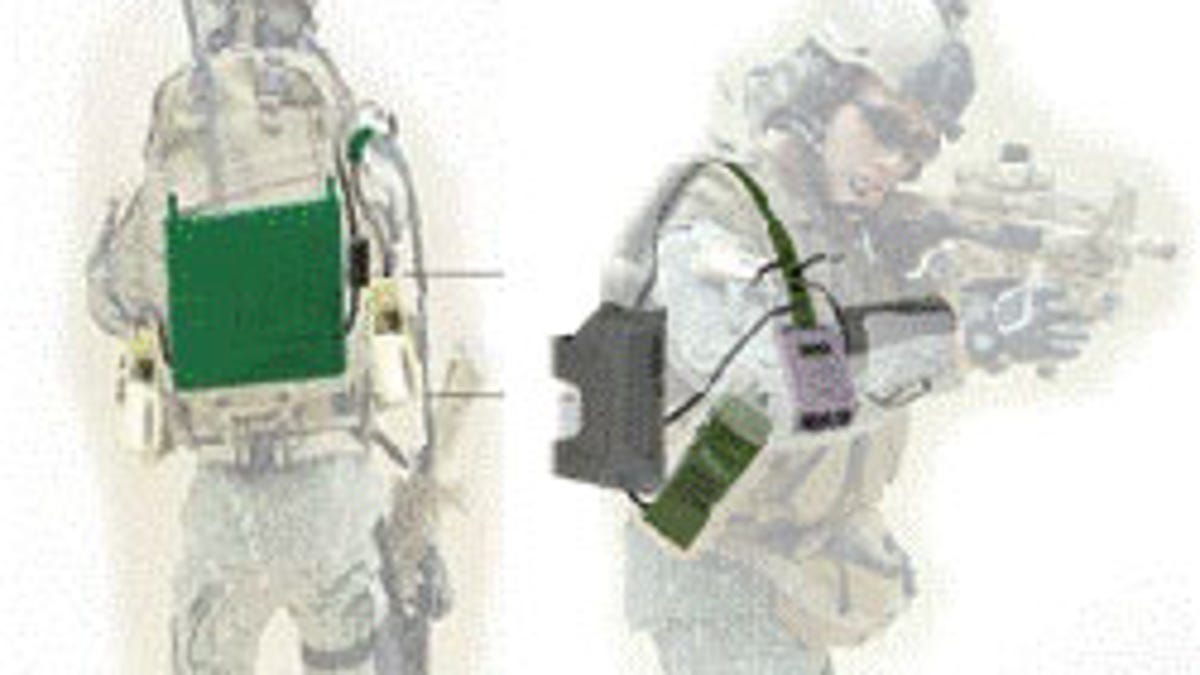Methanol fuel cells the latest in portable power
German company capitalizes on award-winning methanol fuel cell technology, designing wearable power for soldiers. The Jenny 600S delivers 25 watts of power for up to 20 hours.

A German company has introduced a "wearable" fuel cell that uses direct methanol fuel cell technology, doing away with the weighty mechanical components usually associated with generation of electrical power.
Based on an award-winning unipolar stack technology design, the Jenny 600S delivers 25 watts of power for up to 20 hours at a time, according to the company Smart Fuel Cell (SFC).
SFC fuel cells took top honors in the U.S. Department of Defense's Wearable Power Competition last October against stiff competition from a host of big-name competitors. But it's not the only game: companies like UtraCell and Jadoo Power also offer a range of portable fuel cell options to military customers.
The Jenny uses replaceable liquid methanol fuel cartridges and can be worn by soldiers in a vest, where it instantly kicks in from standby mode to automatically recharge batteries when needed. It works silently in both vertical and horizontal positions, according to SFC. It can also be left in a hands-off mode to automatically power up equipment in the field. The company estimates that the unit could reduce the weight of the batteries that soldiers must carry on certain missions by up to 70 percent.
And the SFC system uses nonpressurized methanol, which has been given the seal of approval in tests by Army Research Lab and Natick Soldier Center, according to SFC. Low pressure gives it a leg up, in terms of safety over pressurized gases like hydrogen, propane, or butane.
It's not available to civilians yet, but look for systems like this to shake out in the near future.